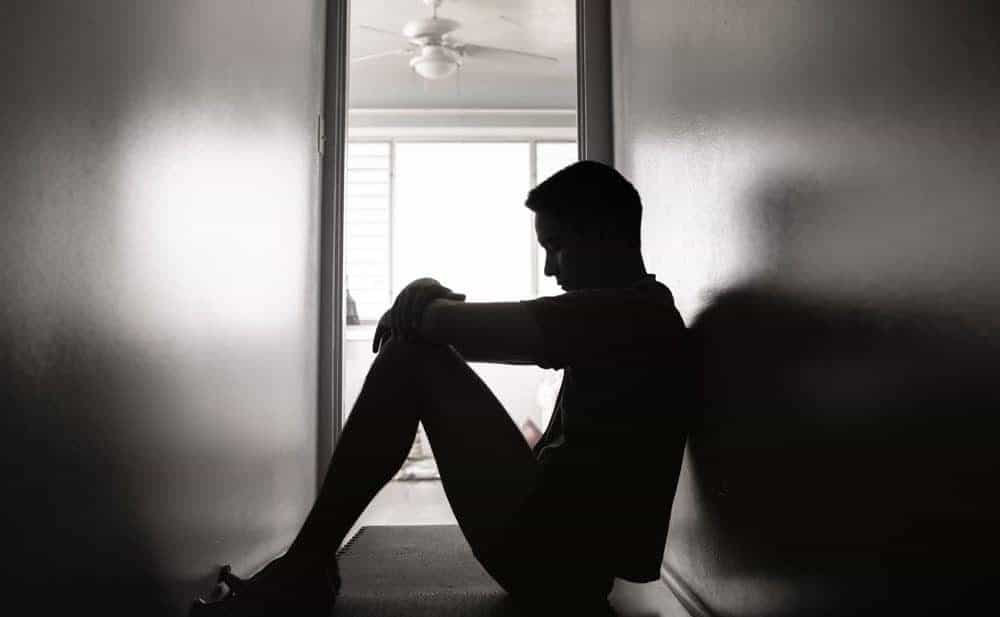Heroin addiction continues to cast a long shadow over communities across Texas and the United States, profoundly impacting individuals and families. As the nation grapples with a growing opioid crisis, understanding the symptoms of heroin withdrawal becomes crucial for those on the path to recovery. At The Lovett Center in Houston, Texas, we are dedicated to supporting individuals as they navigate the challenges of addiction and recovery.
In Texas, the heroin epidemic has contributed to a dramatic rise in drug-related fatalities. Over the past five years, drug poisoning deaths have surged by more than 75%, reaching a harrowing rate of 15.8 deaths per 100,000 residents in 2021. This alarming trend underscores the urgency for effective treatment and support systems.
Heroin withdrawal can be an intense and daunting experience, marked by a range of physical and psychological symptoms. Recognizing these symptoms is an essential step for individuals seeking to reclaim their lives from addiction. At The Lovett Center, we offer comprehensive treatment programs tailored to address these challenges, providing the necessary care and guidance to foster long-term recovery. Join us as we explore the intricacies of heroin withdrawal and the critical role of professional support in overcoming addiction.
The Nature of Heroin Addiction

Heroin addiction is a chronic condition characterized by compulsive drug-seeking behavior driven by the drug’s euphoric effects. Understanding the nature of this addiction is essential for recognizing the challenges faced during withdrawal.
The Science Behind Heroin Dependence
Heroin is an opioid that binds to the brain’s opioid receptors, leading to feelings of pleasure and pain relief. Over time, the brain adapts to the drug’s presence, requiring larger doses to achieve the same effects. This phenomenon, known as tolerance, can lead to physical dependence.
When an individual stops using heroin, the body goes through a period of adjustment, which can trigger a host of withdrawal symptoms as it struggles to regain normal functioning without the substance.
Psychological and Physical Aspects of Heroin Addiction
Addiction to heroin is not solely a physical condition; it also has major psychological components. Many users experience co-occurring mental health disorders, such as depression or anxiety, exacerbated by the effects of withdrawal. The interplay between the physical need for the drug and the psychological drive to use it can make quitting extremely challenging. Users often find themselves trapped in a cycle of use and withdrawal, where the temporary relief provided by heroin becomes a desperate escape from emotional pain.
Identifying Heroin Withdrawal Symptoms
Withdrawal symptoms can vary widely in intensity and duration among individuals, depending on several factors such as addiction severity, medical history, and overall health. Identifying these symptoms early can aid in seeking appropriate help and intervention.
Early Signs of Heroin Withdrawal
The early signs of heroin withdrawal usually begin within 6 to 12 hours after the last use. Common symptoms include:
- Anxiety and restlessness
- Insomnia
- Runny nose and yawning
- Pupil dilation
These early symptoms often serve as a precursor to more severe physical and psychological manifestations as the body continues to adjust to the absence of heroin. Individuals may also experience heightened sensitivity to pain and an overwhelming sense of unease, which can further complicate their emotional state. The psychological impact of these early symptoms can lead to a vicious cycle of anxiety, where the fear of withdrawal exacerbates the symptoms themselves, making it crucial for those affected to seek support from healthcare professionals or support groups.
Progression of Withdrawal Symptoms
As withdrawal progresses, symptoms typically intensify and can include:
- Nausea and vomiting
- Muscle aches and cramps
- Diarrhea
- Cold flashes and goosebumps
This phase can last several days and may lead to severe discomfort, pushing individuals to relapse in order to alleviate their suffering. The physical toll of withdrawal can be debilitating, often leading to dehydration and electrolyte imbalances due to persistent vomiting and diarrhea. Additionally, psychological symptoms such as depression and irritability may emerge, further complicating the withdrawal experience.
The Timeline of Heroin Withdrawal
Understanding the timeline of heroin withdrawal can help individuals and their loved ones prepare for this challenging experience. The duration and severity of symptoms can vary significantly from person to person, but a general timeline can be outlined.
The First 24 Hours
Within the first 24 hours of stopping heroin, withdrawal symptoms begin to manifest. Initially, individuals may experience mild anxiety and restlessness, with physical symptoms gradually escalating.
During this period, it’s crucial to seek support, as this is when the temptation to use heroin often becomes strongest. Engaging with a support group or a trusted friend can provide a vital lifeline, helping to navigate the emotional turmoil and physical discomfort that often accompanies this stage.
The First Week
The first week is marked by the peak of withdrawal symptoms. Typically, most physical symptoms are the most severe between days 2 and 4. While some symptoms will begin to ease, others may persist and evolve into psychological issues such as cravings and emotional instability.
Many individuals report feeling utterly depleted during this time, leading to difficulty concentrating and a lack of motivation. Proper medical support can be crucial during this stage. Healthcare professionals may recommend medications to alleviate some of the more severe symptoms, as well as counseling to address the psychological aspects of withdrawal. This holistic approach can make a significant difference in the recovery journey.
Long-Term Withdrawal Symptoms
While acute withdrawal symptoms may subside after the first week, long-term withdrawal symptoms can linger for weeks or even months. Common lingering symptoms include:
- Persistent anxiety
- Sleep disturbances
- Depressed mood
- Cravings for heroin
These long-term symptoms highlight the importance of continued support and follow-up treatment after the initial withdrawal process.
Interventions for Heroin Withdrawal

Managing heroin withdrawal often requires medical intervention. Fortunately, there are effective treatments designed to alleviate the distressing symptoms associated with withdrawal and to facilitate recovery.
Medication-Assisted Treatment (MAT)
Medication-assisted treatment (MAT) combines medications with counseling and behavioral therapies to treat opioid use disorders effectively. Medications such as methadone and buprenorphine can help ease withdrawal symptoms and reduce cravings.
MAT has been shown to increase retention in treatment, reduce the risk of relapse, and improve the quality of life for those struggling with addiction. Additionally, the integration of MAT with psychosocial support enhances the overall effectiveness of the treatment. Patients receiving MAT often report a greater sense of stability and are better equipped to engage in their recovery process, as the medications help to normalize brain function and mitigate the intense discomfort of withdrawal.
Non-Pharmacological Therapies
In addition to MAT, non-pharmacological therapies can play a significant role in the recovery process. Techniques such as cognitive-behavioral therapy (CBT), mindfulness-based stress reduction, and holistic therapies (such as yoga and acupuncture) can support emotional and psychological healing.
These therapies can help individuals develop coping mechanisms, improve their mental health, and build a supportive community for their recovery journey. Furthermore, engaging in group therapy sessions can foster a sense of belonging and accountability as participants share their experiences and challenges.
The Timeline of Heroin Withdrawal
Understanding the timeline of heroin withdrawal can help individuals and their loved ones prepare for this challenging experience. The duration and severity of symptoms can vary significantly from person to person, but a general timeline can be outlined.
Within the first 24 hours of stopping heroin, withdrawal symptoms begin to manifest. Initially, individuals may experience mild anxiety and restlessness, with physical symptoms gradually escalating.
During this period, it’s crucial to seek support, as this is when the temptation to use heroin often becomes strongest. Engaging with a support group or a trusted friend can provide a vital lifeline, helping to navigate the emotional turmoil and physical discomfort that often accompanies this stage.
The first week is marked by the peak of withdrawal symptoms. Typically, most physical symptoms are the most severe between days 2 and 4. While some symptoms will begin to ease, others may persist and evolve into psychological issues such as cravings and emotional instability.
Many individuals report feeling utterly depleted during this time, leading to difficulty concentrating and a lack of motivation. Proper medical support can be crucial during this stage. Healthcare professionals may recommend medications to alleviate some of the more severe symptoms, as well as counseling to address the psychological aspects of withdrawal. This holistic approach can make a significant difference in the recovery journey.
While acute withdrawal symptoms may subside after the first week, long-term withdrawal symptoms can linger for weeks or even months. Common lingering symptoms include:
- Persistent anxiety
- Sleep disturbances
- Depressed mood
- Cravings for heroin
These long-term symptoms highlight the importance of continued support and follow-up treatment after the initial withdrawal process.
Contact The Lovett Center to Learn More About Heroin Addiction Treatment
Understanding and recognizing the symptoms of heroin withdrawal is a pivotal step in the journey toward recovery. As daunting as this process may seem, it is also the beginning of a transformative path to a healthier, addiction-free life. At The Lovett Center, we are committed to providing the comprehensive treatment and care necessary for individuals facing the challenges of heroin addiction.
Our compassionate team is dedicated to supporting you through every stage of recovery, ensuring you have the tools and guidance needed to overcome addiction. With the right support and resources, recovery is not just a possibility but a promise of a brighter future. We encourage anyone struggling with heroin addiction to seek professional help and take the courageous step toward reclaiming their lives. Remember, you are not alone, and with the right help, a healthier, happier future is within reach.



